Industrial thermometer types: Industrial digital thermometers are used for temperature measurement in many industrial applications. They are generally more durable than laboratory thermometers. The way an industrial thermometer works depends upon the type of temperature sensor it uses. Sensor options include bimetal, liquid or gas-filled, electronic, or infrared (IR).
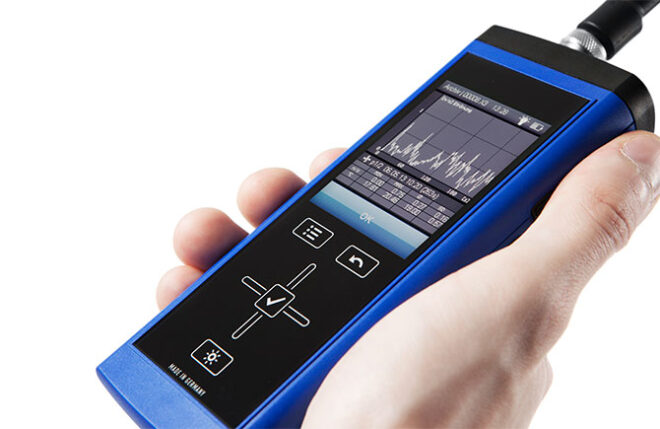
Digital Thermometer for Industrial use
Temperature measurement in today’s industrial environment encompasses a wide variety of needs and applications. To meet this wide array of needs the process controls industry has developed a large number of sensors and devices to handle this demand.
Temperature is a very critical and widely measured variable for most mechanical engineers. Many processes must have either a monitored or controlled temperature. This can range from the simple monitoring of the water temperature of an engine or load device, or as complex as the temperature of a weld in a laser welding application.
More difficult measurements such as the temperature of smokestack gas from a power generating station or blast furnace or the exhaust gas of a rocket may need to be monitored. Much more common are the temperatures of fluids in processes or process support applications, or the temperature of solid objects such as metal plates, bearings, and shafts in a piece of machinery.
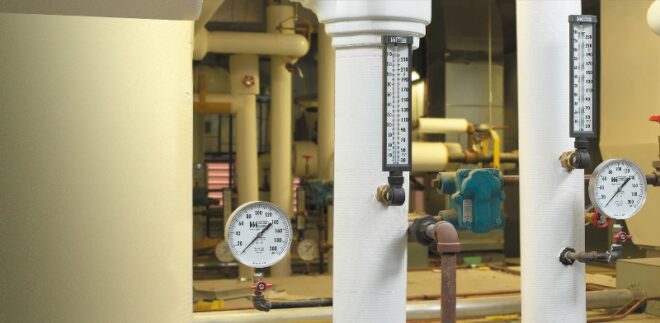
Industrial thermometer types
Industrial thermometer types: In most industries, industrial thermometers are used to ensure that processes are monitored and controlled. However, care must be taken in selecting the right thermometer for accuracy and efficiency. There are numerous types of industrial thermometers that are available in the market today.
There are many types of thermometers, but some common thermometers are laboratory thermometers, clinical thermometers, thermocouples, Bimetallic strip thermometers, Pyrometers, etc.
You will have a wide range of selections to choose from. It is important that you understand the nature of your industrial process before you choose the thermometer.
You need to know the operating temperatures, operating pressures, and the chemicals that are involved in different processes in the industry. When you have this knowledge then it will be easier for you to choose the best thermometer.
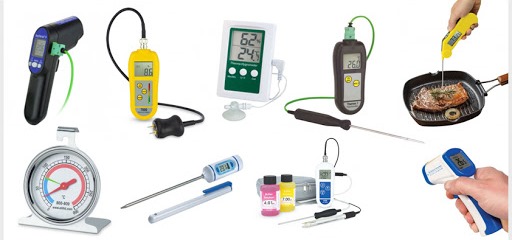
Laboratory thermometers
It is used to measure the room temperature of hot solids and liquids in experiments. It measures temperature in the range of 5 °C to 110 °C and on higher temperatures.
Digital thermometers
Digital thermometers measure the temperature by means of an electronic circuit. The information they capture is sent to a microchip that processes it and displays it numerically on the digital screen. They are easy to use, fast, accurate and inexpensive. These are advanced thermometers used to measure the temperature of a body of a high level of accuracy.
Infrared thermometers
Infrared thermometers capture body heat in the form of infrared energy given off by a heat source. This type of thermometer is based on the fact that the laws that govern the radioactive emission of bodies allow the precise calculation of the temperature of the radiating object from its emission spectrum, without requiring direct contact with it.
Probe thermometers
Probe thermometers are easily one of the most common types of thermometer. They deliver instant temperature readings of foods, liquids, and semi-solid samples. The probe is often equipped with a pointed tip making them ideal for penetration and immersion.
They are ideal for use in the catering trade for hygiene testing, retail outlets, and laboratories.
Thermocouple sensor
A Thermocouple is a sensor used to measure temperature.
Thermocouples consist of two wire legs made from different metals. The wire’s legs are welded together at one end, creating a junction. This junction is where the temperature is measured. When the junction experiences a change in temperature, a voltage is created. The voltage can then be interpreted using thermocouple reference tables to calculate the temperature.
Thermocouples are used in many industrial, scientific, and OEM applications. They can be found in nearly all industrial markets: Power Generation, Oil/Gas, Pharmaceutical, BioTech, Cement, Paper & Pulp, etc. Thermocouples are also used in everyday appliances like stoves, furnaces, and toasters.
Temperature data loggers
Temperature data loggers allow the recording of continuous temperature measurements. Once activated, they record the temperature at predetermined intervals and save it to memory. It is typical to download the data and view it on a graph but some devices display the data in real-time.
Most devices are compatible with any pc, laptop or tablet. Their design allows them to track heat levels in critical areas where a constant temperature must exist.
HVAC digital thermometer
HVAC digital thermometers are most commonly used to measure air, water, refrigerant, and copper lines’ temperatures, and these measurements are vital to locating the source of potential hazards or defects.
Automotive thermometer
The thermometer in your car isn’t actually a thermometer. Technically, it’s a thermistor, a device that measures temperature based on the change in electrical current that temperature can cause, instead of the expanding or contracting of a liquid like mercury.
analogue thermometers
A thermometer is an instrument that measures the temperature of a system in a quantitative way. By the word Analog thermometer we usually mean to say mercury thermometer due to the silvery-white liquid “mercury” inside it. Analog thermometers are often one the cheapest and most popular types of thermometers. They are ideal for use in the home or in non-specialist environments where traceable accuracy is not required.
Dual sensor thermometers
Dual Sensor Thermometers are typically used for environmental monitoring. They are ideal for comparing two environments simultaneously. The units have one internal sensor that can track the immediate surrounding environment.
industrial digital thermometer with probe
A digital probe thermometer, or digital temperature probe, is a device that uses sensitive resistors in a stainless-steel probe to measure temperature. Unlike traditional mercury thermometers that take some time to read temperature change, readings on a digital probe thermometer are much quicker.
High accuracy thermometer
The range of a thermometer and its reading accuracy is dependent on the size of the hole, the length of the tube, and the fluid in the thermometer. Typically the smaller the reading increment, the less range it will have.
As an example, a 0.1° C accuracy mercury thermometer with a range of 100°C will typically be about 600 mm long. The restrictions rest with how well the maker can fabricate a readable scale.
To increase readability some manufacturers have moved to non-round thermometer bodies, The rounded corner on the reading side acts as a magnifying glass, making the liquid column show up wider, and easier to read.
The round thermometer is still the standard and there are a variety of holders and seals to fit them. There are also armored sleeves to put them in that allow them to be used, but reduce the chance of breakage.
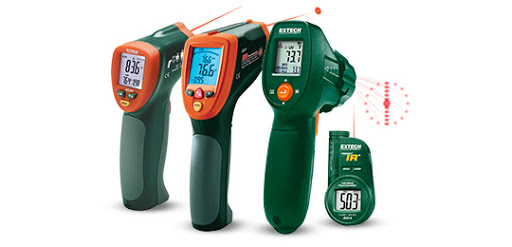
Infrared (IR) thermometers enable you to measure temperature quickly, at a distance, and without touching the object you’re measuring. They are so useful, easy, and even fun to use that they have become as common in kitchens as they have on factory floors.
Digital thermometers contain a small computing mechanism and a resistor. A change in temperature causes the sensor to notice a change in resistance. The computer converts the difference in resistance into a difference in temperature and offers a digital readout in degrees. A digital thermometer is used to take an oral temperature. It is a small hand-held device with a “window” showing your temperature in numbers.
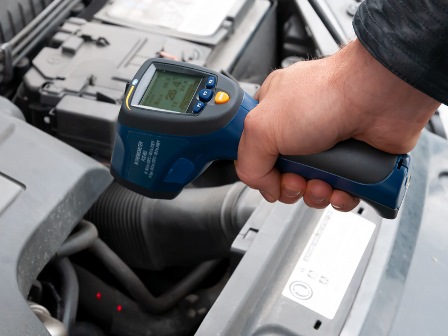
Thermometer for Industrial Use
An industrial thermometer is an instrument designed to measure and indicate the temperature of a specific application or condition.
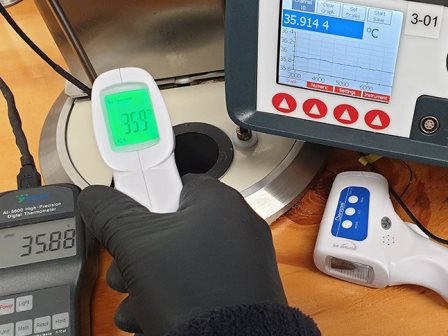
Infrared Thermometer Calibration
Regular thermometer calibration ensures that your device is operating at its highest possible level of accuracy.
The most read
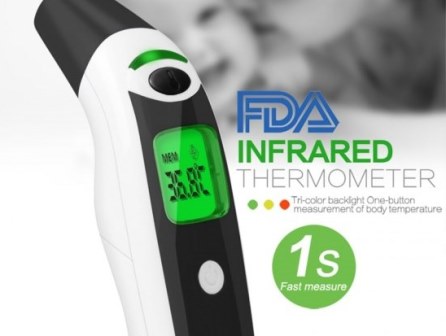
Infrared Thermometer made in USA
- What is Top 10 Thermometer Made In the USA in 2020?
- What is the best medical infrared thermometer made in the USA?
- What is the best-infrared thermometer made in the USA?
